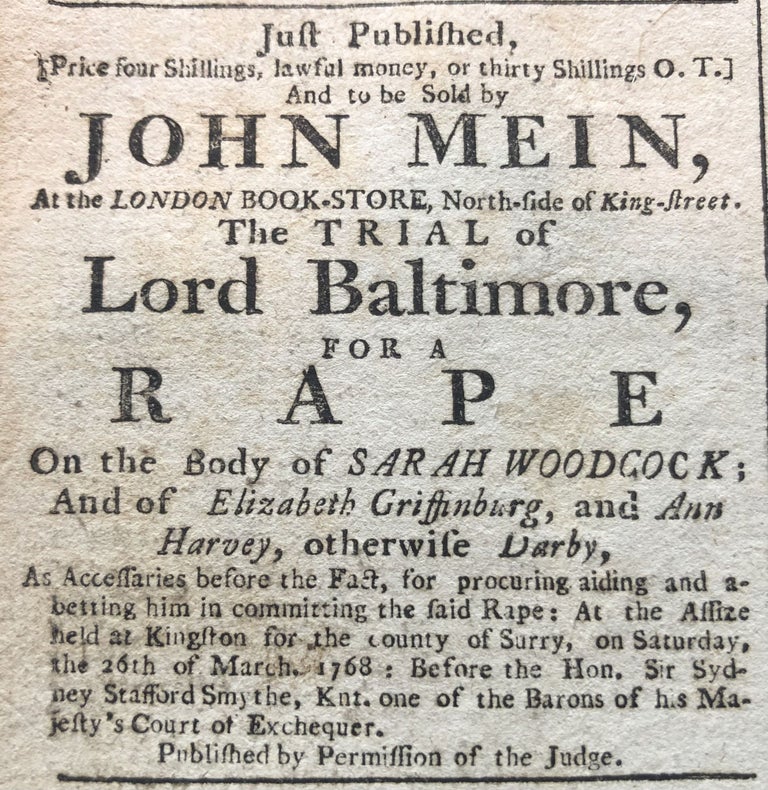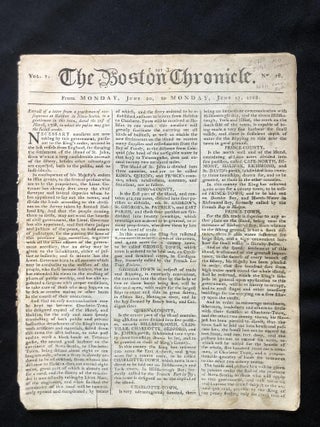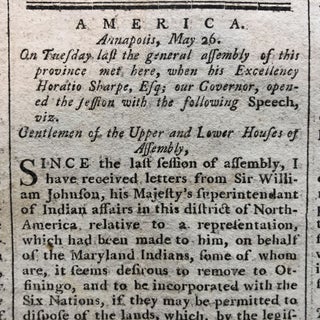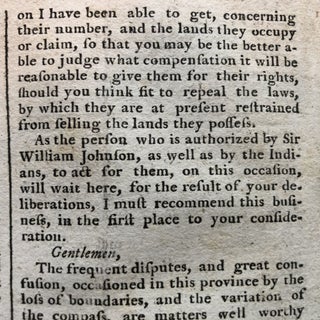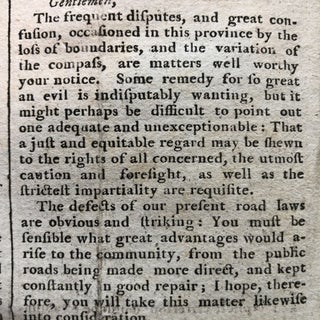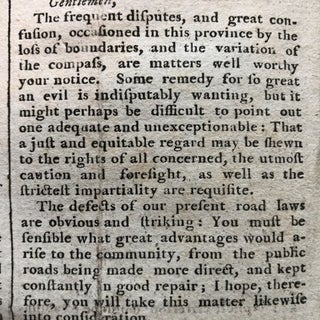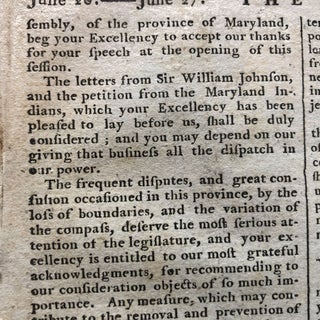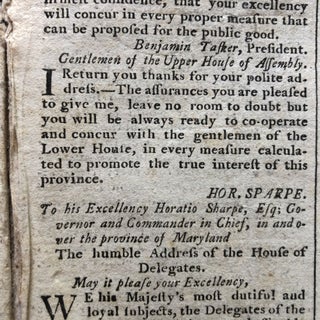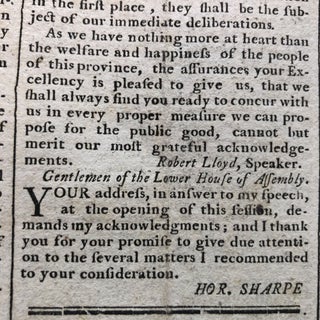1768 newspaper MARYLAND GOVERNOR HORATIO SHARPE LETTERS Md Indians to Join Iroquois Confederacy
Boston, Massachusetts: The Boston Chronicle, 1768. 1st Edition. Very Good. Item #900133
A 1768 pre-Revolutionary War American newspaper, the Boston Chronicle dated June 27, 1768, with a detailed exchange between Maryland Royal Governor Horatio Sharpe and the Maryland Assembly regarding a petition by Maryland Native Americans to join the Iroquois Confederacy.
On the back page is a large ad for the official published account of the sensational trial of LORD BALTIMORE for rape, just completed.
In the exchange between Sharpe and the Assembly, the Governor addresses a petition by Maryland Indians to quit the colony and join the Six Nations, the Iroquois Confederacy of New York and give up their Maryland lands in the process. The letters detail Sharpe's negotiations with Sir William Johnson, Superintendent of Indian Affairs for the British Northern Colonies and a staunch ally of the Iroquois.
Contemporary accounts of the Native Americans of Maryland are quite scarce, and these two letters by Sharpe have his signature in block type at the end of each.
The 6th Lord Baltimore, Frederick Calvert, was accused of rape in 1768 but was acquitted using the defense of mutual consent. The trial was an international sensation. Calvert who viewed Maryland as just one of his extensive estates, never set foot in the colony, despite his often tyrannical rule.
"In 1768, Calvert was accused of abduction and rape by Sarah Woodcock, a noted beauty who kept a milliner's shop at Tower Hill. He was indicted at Kingston Assizes, and put on trial, pleading not guilty by reason of consent. After deliberating for an hour and twenty minutes the jury acquitted Calvert, believing that Woodcock did not make adequate attempts to escape.
Much salacious gossip accompanied the trial, and in the same year one of Calvert's mistresses, Sophia Watson, wrote an autobiography entitled Memoirs of the Seraglio of the Bashaw of Merryland, by a Discarded Sultana (London, 1768) Such was Baltimore's reputation that her readers were in no doubt as to whom she was referring. Sultana Watson offered many intimate details of life in the seraglio, including the perhaps unkind suggestion that Baltimore himself was barely able to satisfy one, let alone eight, mistresses.
Following his acquittal Frederick left England, presumably hoping that his notoriety did not extend to Europe. In this he seems to have been at least partly correct, as in July 1769 the British Ambassador to Russia reported that "Lord Baltimore arrived here last week from Sweden, I had the honour to present him to the Empress who was pleased to receive his Ld extremely graciously". In any event, Calvert's brush with the law does not appear to have affected his unconventional living arrangements. Count Maximilian von Lamberg wrote of his travels:
In 1769 my Lord was travelling with eight women, a physician, and two negroes, which he called his corregidores, who were entrusted with the discipline of his little seraglio. With the aid of his physician he conducted odd experiments on his houris: he fed the plump ones only acid foods and the thin ones milk and broth. He arrived at Vienna with the train I have described; when the chief of police requested him to declare which of the eight ladies was his wife, he replied that he was an Englishman, and that when he was called upon to give an account of his sexual arrangements, if he could not settle the matter with his fists, it was his practice to set out instantly on his travels again.
By this time it is evident that he was suffering from financial difficulties, and in 1768 he sold the family's great estate at Woodcote Park, apparently to a wealthy Soho upholsterer." - Wiki
#1V-054
An incredible piece of pre-Revolutionary War Maryland history! Perfect for framing and display!
Price: $250.00

